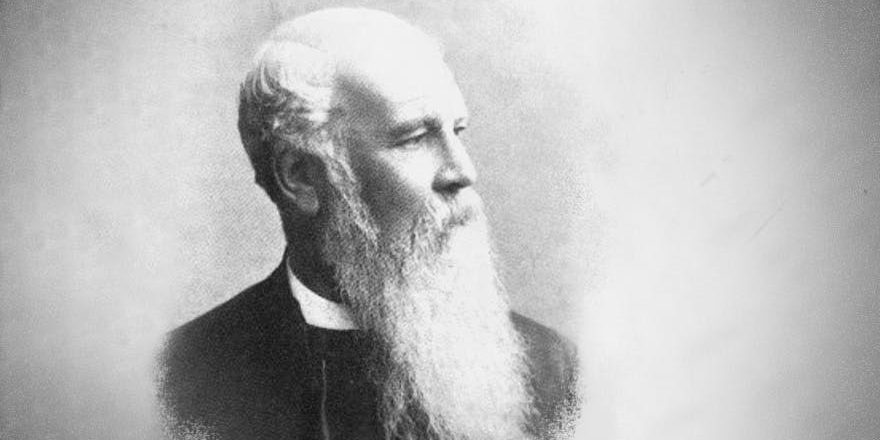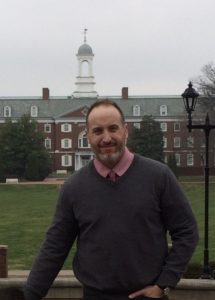
Why Pastors Should Engage J.C. Ryle
Bishop J. C. Ryle died in the Lord on June 10, 1900. His close friend and fellow clergyman, Canon Richard Hobson, preached his funeral sermon. He said the following about the chief pastor of Liverpool,
[he] was great through the abounding grace of God. He was great in stature; great in mental power; great in spirituality; great as a preacher and expositor of God’s most holy Word; great in hospitality; great in winning souls to God; great as a writer of Gospel tracts; great as an author of works which will long live, great as a bishop of the Reformed Evangelical Protestant Church of England of which he was a noble defender, great as the first Bishop of Liverpool. I am bold to say that perhaps few men in the nineteenth century did so much for God, for truth, for righteousness, among the English speaking race and in the world as our late bishop.
Who was this great man? J. C. Ryle was born and raised in a wealthy but unspiritual home. He distinguished himself academically and athletically at Eton and Oxford. He experienced an evangelical conversion in his final year at university, the account of which has achieved a semi-legendary status among evangelicals. Shortly thereafter, his father’s bankruptcy ruined the family, ended his political career before it started, and forced him into the ministry of the Church of England. Although he initially became a clergyman because he felt “shut up to it,” Ryle quickly gained a reputation for being a powerful preacher, diligent pastor, popular author, and effective controversialist. He rose through the evangelical ranks to become the undisputed leader and party spokesman—the first to hold that distinction since Charles Simeon (1759–1836). He became the first Bishop of Liverpool in 1880 at an age (64) when many clergymen contemplate retirement, and served as the chief pastor of the second city of the British Empire until his death in 1900. All Christians should engage with Ryle, but this is especially true of pastors.
First, J. C. Ryle’s Holiness is a must-read for pastors.
Although Holiness was originally a response to the early teaching of the Keswick movement, it has become a classic statement of Puritan and evangelical spirituality written in simple, forceful, and modern English. Think of it as Bunyan’s Pilgrim’s Progress stated propositionally.
The enlarged edition of Holiness (1879) contains 20 chapters, as well as an excellent introduction and a chapter with extracts from Robert Traill and Thomas Brooks. The first seven chapters are the heart of the work and form a book within a book. Here Ryle explains “the real nature of holiness, and the temptations and difficulties which all must expect who follow it.” He begins with sin and human corruption (ch. 1), which is the foundation of a proper understanding holiness. In the next two chapters he treats holiness doctrinally (ch. 2) and practically (ch. 3). In the chapters that follow he argues that the Christian life is, at its very core, a fight (ch. 4); that the cost of following Christ must be counted (ch. 5); and that growth in grace is an essential part of true holiness (ch. 6). He concludes this section with an encouraging and pastorally sensitive discussion of assurance (ch. 7). This is Ryle at his absolute best, which is saying quite a lot.
The rest of the book consists of a series of holiness-related sermons that are arranged thematically. The first group (chs. 8–12) is a series of character studies that serve as examples for Christians. Perhaps the most interesting is Christ himself. Ryle explains, “He that would be conformed to Christ’s image, and become a Christ-like man, must be constantly studying Christ himself.” Indeed, this is the “one secret of eminent holiness.” The church is the subject of the second and smallest group (chs. 13–14) of sermons. At first glance, this might seem like an odd choice, but Ryle skillfully connects it back to the theme of the book. Real, practical holiness is the leading characteristic of members of the church triumphant, and members of the church militant are urged to make spiritual progress. Jesus is the focal point of the third group of sermons (chs. 15–18). These chapters contain a remarkable blend of Christology, doxology, evangelism, and spiritual instruction. The next to last chapter (ch. 19) is a diagnostic sermon Ryle preached in 1879 in which he assesses the “Wants of the Times.” Though times have changed, Ryle’s analysis, for the most part, is as applicable today as it was then. And the final chapter (ch. 20), “Christ Is All,” concludes the work by extolling the supremacy of Christ.
Pastors need to read Holiness because they need holiness. If Ryle were alive today, he would probably remind us that the New Testament has more to say about our character than our competency. Personal holiness, Ryle argues, is the great secret of ministerial usefulness. And a slow and sober, prayerful and penitential reading of Holiness, under the Spirit’s blessings, has the potential to promote the kind of practical holiness that ministers so desperately need. If Ryle were alive today, he would probably remind us that the New Testament has more to say about our character than our competency. Personal holiness, Ryle argues, is the great secret of ministerial usefulness. Click To Tweet
Second, ministers should read Expository Thoughts on the Gospels.
Early on in ministry, Ryle began the practice of delivering two midweek lectures for his parishoners. They consisted of a scripture reading, and then a brief exposition and application of the text. These midweek lectures proved to be quite popular, and so Ryle began publishing them as tracts. They went on to become Expository Thoughts on the Gospels.
This series is neither a critical commentary nor is it a line-by-line exposition of the four gospels. Ryle wrote them with three purposes – note these, pastor – in mind: (1) for use in family worship; (2) to aid those who visit the sick and poor; and (3) to aid and encourage private reading of the gospels. The format and the substance are classic Ryle: simple and direct, evangelical and Christ-centered.
He divides the biblical text into short sections, usually around 12 verses. He provides a brief explanation of the scope and purpose of the passage in the opening paragraph. But the heart of each section consists of Ryle’s “expository thoughts,” which are the leading points drawn from the text. They typically range in number from three to five per section. Ryle intentionally avoids discussion of controversial subjects and secondary matters. His focus remains fixed on the essentials: Christ, his gospel, and practical Christian living. In the later volumes (Luke and John) he adds notes at the end of each chapter to discuss debated interpretations and controversial subjects, but practical exposition remains the focal point.
Pastors can benefit from Expository Thoughts in many ways. It still serves as an excellent resources for private reading and family worship, thanks in large part to Ryle’s simple style and gospel-focus. Expository Thoughts is also an excellent commentary series in its own right. In Commenting and Commentaries, C. H. Spurgeon remarked: “We prize these volumes…Mr. Ryle has evidently studied all previous writers upon the Gospels, and has given forth an individual utterance of considerable worth.” His commentaries on Matthew, Mark, and Luke were recently included in The Crossway Classic Commentary series, alongside commentaries by Calvin, Luther, and Owen. Those preaching on the Gospels would do well to consult these excellent volumes. Finally, pastors should remember the three pastoral purposes that lie behind Expository Thoughts. What are we doing to promote family worship and private devotion? How are we equipping the saints for the work of ministry? We can benefit from Ryle’s example as well as his writings.
Thirdly, pastors need to become familiar with Ryle’s conversion.
J. C. Ryle’s conversion is one of the more remarkable conversions in church history. He wasn’t raised in a vibrant Christian home like John and Charles Wesley. He had no spiritual mentors like Ambrose (Augustine) or Johann von Staupitz (Luther). He wasn’t even converted by a sermon like Charles Spurgeon. J. C. Ryle was converted simply by hearing the Scriptures read publicly.
In the summer of 1837, while a student at Oxford, Ryle attended a Sunday morning worship service at a nearby parish church. The second lesson of the morning was taken from Ephesians 2. When the lector reached verse 8, he slowed down and made some unusual and emphatic pauses. He read: “For by grace – are ye saved – through faith – and that, not of yourselves – it is the gift of God.” These words struck Ryle to the heart. Later in life he could remember neither the name of the church, nor the identity of the reader, nor the substance of the sermon, but he never forgot the reading of Ephesians 2:8. It converted him, and its themes – salvation by grace through faith – became the great themes of his ministry. The sum and substance of Ephesians 2:8 was so central to his life and work that he had it inscribed on his gravestone. It can be seen today in the churchyard of All Saints, Childwall, in Liverpool. One of the greatest evangelical leaders of the 19th century was converted simply by hearing the Word of God read one Sunday morning. Click To Tweet
Remember the conversion of J. C. Ryle the next time you plan your worship service. One of the greatest evangelical leaders of the 19th century was converted simply by hearing the Word of God read one Sunday morning. Reading the Scriptures publicly, especially in the context of public worship, is no mean task. As W. H. Griffith Thomas notes, “it is a solemn responsibility to read God’s own Word to the people, and it may easily be made a powerful influence for spiritual blessing.” It certain was in Ryle’s case. So give thoughtful and prayerful attention to the place and priority of the public reading of Scripture in your worship services.

